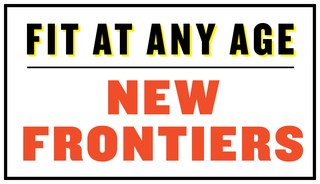
This story is part of Fit at Any Age: New Frontiers—a next-level guide to the latest science and tips for a stronger, longer life.
WE ASKED PETER ATTIA, M.D., the Austin based physician, creator of the podcast The Drive, author of the best-selling 2023 book Outlive: The Science & Art of Longevity, and cofounder of the performance center 10 Squared, to share his best body and mind longevity tips for every decade.
BODY • You’re near your physiological prime in terms of your body’s capacity to train. This the decade to prioritize training. Lean in to volume and work out as much as possible to build a reservoir of muscle and fitness.
MIND • There’s often a disconnect between mistakes you make, which probably are minor, and the way you talk to yourself about them, which can be brutal. One of the most powerful exercises I learned was to listen to my self-talk. I’d record voice memos to myself—pretending I was speaking to a dear friend—on my phone after I did anything that could produce self-judgment. Over time, my self-critical voice became fainter and fainter.
BODY • Your endurance-peak plateau extends through this time, so train for a marathon or century ride or triathlon and look to push your cardio fitness to super-high levels.
MIND • Life is happening—career, family, mortgage—so keep your stress-tolerance window open as wide as possible. Things that widen it are what you’d expect: exercise, sleep, time with friends, and other behaviors that support emotional health. Overcommitting compresses that window; work on learning to use the word no.
BODY • Type II muscle fibers begin to shrink, so emphasize strength training. A reasonable strength goal—work up to it gradually—is to walk carrying your bodyweight for 1 minute. Use dumbbells or a trap bar.
MIND • Harvard happiness professor Arthur C. Brooks, Ph.D., told me that keeping a disappointment journal can change your outlook. Every time something’s really bothering you, write it down. Leave two lines blank under each entry. In 30 days, come back and write what you learned. In six months, fill in the other line with something positive that happened as a result of that.
BODY • As your body’s capacity to train decreases, you need to work in more time for warming up, cooling down, and recovery sessions. As important as training is, injury avoidance is equally critical. Assess your leg strength: Do a wall-sit test (back against a wall, thighs parallel to the floor). Your goal is two minutes.
MIND • This is when people start to notice a slowing of cognitive prowess. Two things stand out as ways to improve that: exercise and time in nature (without electronics). Rucking is an exceptional way to do both—work out and be outside. Also, this is probably the last time your kids will live with you. Are you making the most of that sacred time?
BODY • You may be starting to wobble: Upgrade your strength and stability practice by emphasizing more single-leg exercises like lunges and weighted step ups. Do balance drills with your eyes closed for extra work.
MIND • As we age, our physical and cognitive capacities decrease. However, there is no reason our emotional health—the third pillar of health span—can’t increase as we age. One way: Do more things that bring true enjoyment (a key to happiness). Aim for experiences with other people that spark pleasure and make great memories.
BODY • You’re in the danger zone for falls. At this age, it is much easier to lose muscle than it is to gain muscle, so now is not the time to stop moving or exercising (and if you haven’t started yet, it’s not too late!).
MIND • Your outlook on aging affects your longevity. A rule of thumb (I gleaned this from a friend) for determining someone’s true age is to listen to them talk: If they talk about the past, about all the things that happened and that they did, they’ve gotten old. If they talk about their dreams, their aspirations, what they’re still looking forward to, they’re young.
This article originally appears in the March/April 2024 issue of Men’s Health.
Want more longevity tips? Click the link below to read all of the stories.
 Print
Print




